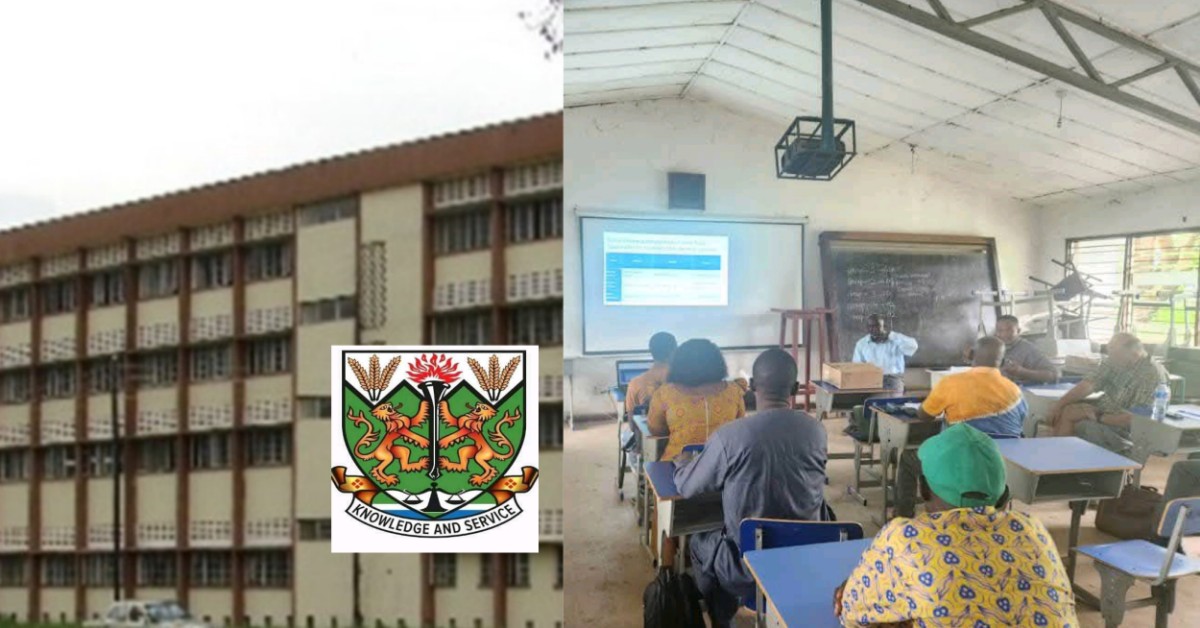Njala University’s School of Agriculture has taken a major step to ensure its PhD and MPhil students are on track in their research programs.
On Thursday, 5th June 2025, the school hosted its first-ever research colloquium as part of a 10-day exercise to check the progress of postgraduate students who enrolled in research programs starting in 2020.
The colloquium, held at the Njala Campus, brought together students, supervisors, and faculty members for a series of presentations where students provided updates on their research work. Each student shared the current stage of their research, their plans moving forward, and the feedback they received from their supervisors.

Professor Roland Suluku, the Dean of the School of Agriculture, explained that the colloquium was designed to ensure that students were not falling behind in their work. “Some students who started in 2020 had no known progress,” he said. “This colloquium helps us track their progress, clarify where they stand, and confirm the timelines they are working with.”
One of the PhD candidates presenting was Mr. Sahr Foday, whose research focuses on underutilized food crops in Sierra Leone and their impact on human health in Bo and Kenema districts. Mr. Foday shared his progress with fieldwork, sample collection, and lab analysis. He expressed satisfaction with the feedback he received, noting that his supervisors, Professor Wadsworth and Dr. Sondai, had approved his move to the final stage of his research.
While the event was centered on individual progress, the colloquium also sparked broader conversations about challenges in agricultural research. Professor Patrick Sawyer highlighted the high costs of laboratory work, explaining that essential equipment and reagents often cost millions of Leones, making it difficult for students to progress without additional funding. He also emphasized the need for research to focus on public health issues such as folic acid deficiency. Other speakers called for greater support for lab technicians who are key to maintaining lab operations.

Professor Suluku used the occasion to announce new rules to ensure that all students are on track. “Every student must provide a detailed timeline, from the literature review to data collection to the final submission,” he stated. “If a student fails to appear before the panel with their supervisor by June 10, we will consider their program discontinued, unless they provide a justified reason.”
The Dean also assured the audience that the school now has a sufficient number of qualified supervisors. “We have five professors already, and more are on the way. When we don’t have the right fit internally, we are linking students with external supervisors,” he said. In addition to the colloquium, the school plans to introduce weekly research seminars in each department.
Professor Suluku emphasized that the colloquium will not be a one-off event. “You can’t earn an MPhil or PhD here without going through presentations and seminars,” he said, sharing that his own PhD journey took seven years, making him deeply aware of the importance of monitoring progress and providing the necessary academic support.
“We are building a culture of accountability,” he concluded. “No student should be left behind. Every student must stay on track and we are here to ensure they do.”

The success of Njala University’s first research colloquium marks an important step toward improving postgraduate accountability and progress. With new measures in place to track student development and ensure no one is left behind, the School of Agriculture is setting the stage for a more structured and productive research environment moving forward.


 1 Comment
1 Comment 









A very good step for Njala University. Indeed you have created the platform for others to follow.